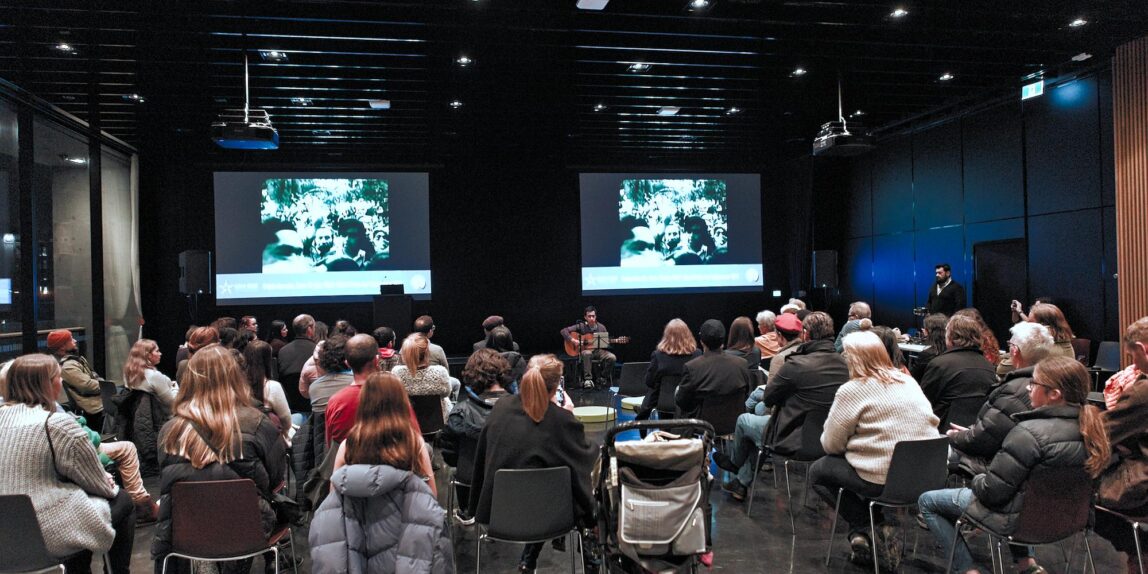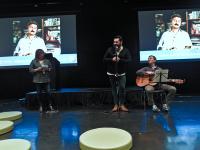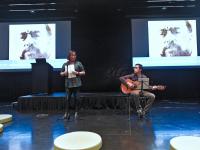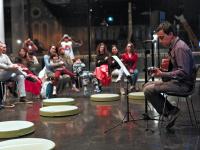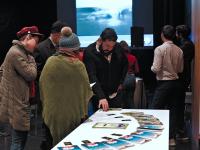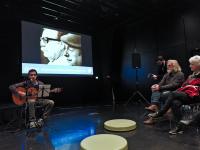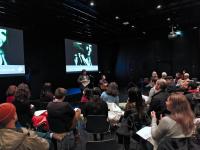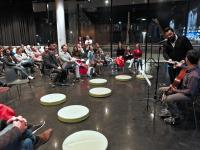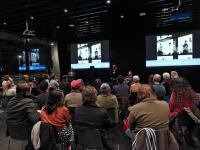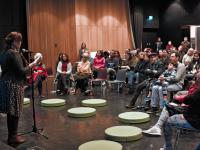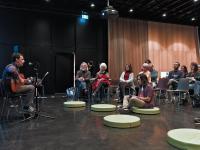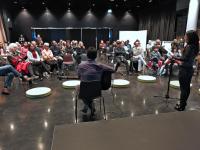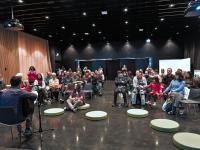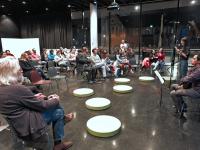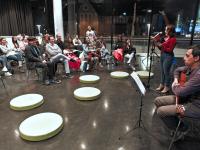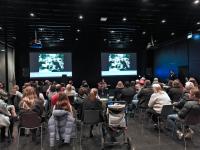We were celebrating Pablo Neruda’s birthday at Tūranga central library in Christchurch.
Who is Pablo Neruda?
Ricardo Eliécer Neftalí Reyes Basoalto (12 July 1904 – 23 September 1973), better known by his pen name and, later, legal name Pablo Neruda, was a Chilean poet-diplomat and politician who won the Nobel Prize for Literature in 1971. Neruda became known as a poet when he was 13 years old, and wrote in a variety of styles, including surrealist poems, historical epics, overtly political manifestos, a prose autobiography, and passionate love poems such as the ones in his collection Twenty Love Poems and a Song of Despair (1924).
Political life
Neruda occupied many diplomatic positions in various countries during his lifetime and served a term as a Senator for the Chilean Communist Party. When President Gabriel González Videla outlawed communism in Chile in 1948, a warrant was issued for Neruda’s arrest. Friends hid him for months in the basement of a house in the port city of Valparaíso; Neruda escaped through a mountain pass near Maihue Lake into Argentina. Years later, Neruda was a close advisor to Chile’s socialist President Salvador Allende. When Neruda returned to Chile after his Nobel Prize acceptance speech, Allende invited him to read at the Estadio Nacional before 70,000 people.
Neruda’s last moments
Neruda was hospitalized with cancer in September 1973, at the time of the coup d’état led by Augusto Pinochet that overthrew Allende’s government, but returned home after a few days when he suspected a doctor of injecting him with an unknown substance for the purpose of murdering him on Pinochet’s orders. Neruda died in his house in Isla Negra on 23 September 1973, just hours after leaving the hospital. Although it was long reported that he died of heart failure, the Interior Ministry of the Chilean government issued a statement in 2015 acknowledging a Ministry document indicating the government’s official position that “it was clearly possible and highly likely” that Neruda was killed as a result of “the intervention of third parties”. However, an international forensic test conducted in 2013 rejected allegations that he was poisoned and concluded that he was suffering from prostate cancer.Pinochet, backed by elements of the armed forces, denied permission for Neruda’s funeral to be made a public event, but thousands of grieving Chileans disobeyed the curfew and crowded the streets.
Neruda is often considered the national poet of Chile, and his works have been popular and influential worldwide. The Colombian novelist Gabriel García Márquez once called him “the greatest poet of the 20th century in any language”,and the critic Harold Bloom included Neruda as one of the writers central to the Western tradition in his book The Western Canon.
The event
Christchurch City Library in collaboration with Southmedia Group organized this event last week. We were very happy having such a good audience who attended the event that day.
During the event we had 10 volunteers who read 5 poems of Pablo Neruda. They read it in English and Spanish. I have to admit that listening Neruda’s poetry in English was a very interesting experience. Also, we invited the talented guitar player, Eduardo Conejeros, who performed a few songs, including a Neruda’s poem made a song by the famous Chilean singer Victor Jara.
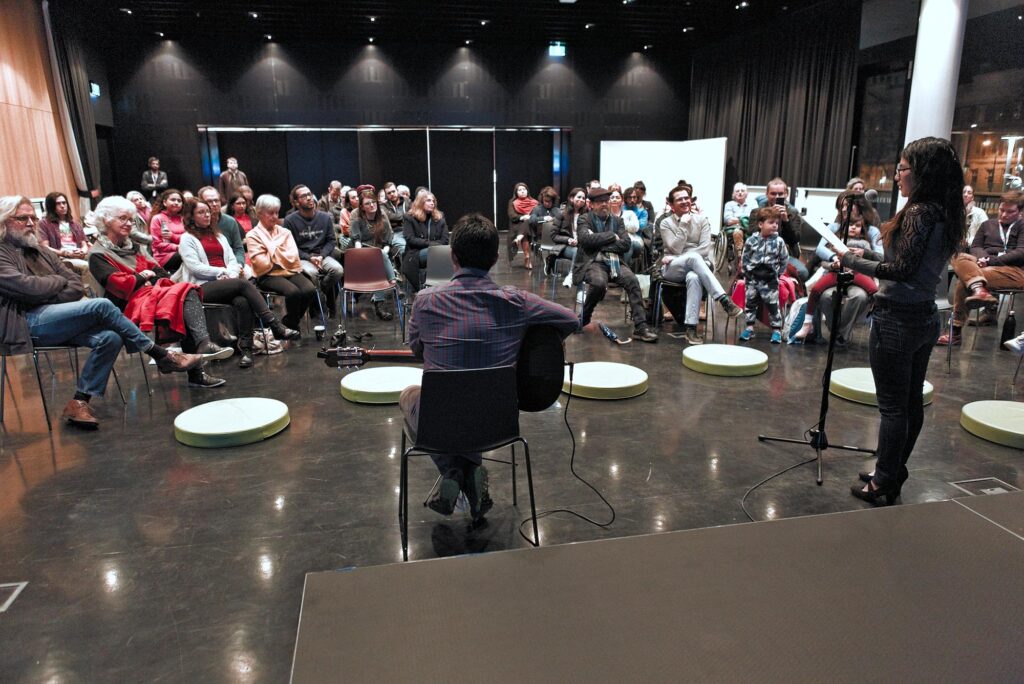
Christchurch city library is a great venue to celebrate Neruda’s life and we are very happy and thankful because this happened. Hopefully we could have more activities like this one in the future.
